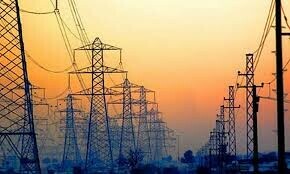ISLAMABAD: With liquefied natural gas (LNG) among the possible importable items, Pakistan is considering only 5-10 per cent of its total oil imports from India till confidence-building measures between the two nations take roots.
A government official told Dawn on Wednesday that Pakistan’s total oil imports currently stand around $14.5 billion and the annual imports of petroleum products from India would not be allowed to exceed $1.5 billion initially.
“The proposal is to start importing between 5-10 per cent of total oil requirement from India because we have to be cautious and careful in dealing with oil supply security and dependability issues,” he said.
He said the two sides were also exploring the possibility of LNG supplies from India that could be transported through bowsers and tankers via land route that could provide relief in supplies to bulk consumers in Punjab, particularly around Lahore and Faisalabad.
The official said the two sides had formed working groups to hold negotiations on pricing and modes of transportation as early as possible during the three-day petroleum secretary-level talks in New Delhi in March this year.
Subsequently, Islamabad proposed dates for dialogue that were not acceptable to New Delhi while dates proposed by India were inconvenient to Pakistani authorities.The two sides are expected to meet during the current month anyway.
The ministry of petroleum and natural resources has been proposing to the government since 2008 to allow import of petroleum products from India to diversify sources of oil imports and secure some savings on transportation charges for areas bordering India.
It was only after a recent decision of the federal cabinet granting the most favoured nation (MFN) status to India that the petroleum ministry was directed by the government to hold dialogue with Indian counterparts on trade of petroleum products.
Pakistan is deficient in almost all petroleum products while India has a surplus refining capacity of better quality although most of its refining capacity also depends on imported crude.
The secretary-level talks had exchanged initial information relating to quality aspects and its pricing, the mode of transportation and its cost and the possible quantities for trading different petroleum products.
Besides import of various products, Pakistan has also discussed the possibility of exporting Naphtha to India.
Islamabad is currently exporting naphtha at cheaper rates because of quality issues with Pakistani refineries.
Naphtha could be considered for export to India and adjusted against import of other refined products mostly for upper areas of Pakistan, including Punjab, Azad Kashmir and Gilgit-Baltistan.
Currently fed by Attock Refinery Limited, these areas often face supply problems because of ARL’s limited capacity.
Pakistan’s consumption of petroleum products currently stands at about 22 million tons, of which about 85 per cent is met through imports.
Indigenous crude production meets only 15 per cent of the consumption, while 30 per cent crude and 55 per cent refined products are imported.
The country’s total refining capacity is about 13 million tons. The transportation of about two million tons of POL products takes place through the railway, 4.5 million tons through pipelines and about 14.5 million tons by road.
Pakistan’s total diesel consumption of about 4.4 million tons can be met through imports from India where its prices are lower than in Pakistan.
The price of diesel in Pakistan is Rs107 per litre against Rs75.68 in New Delhi India (40.91 Indian rupees).
The price of petrol in India is higher and equivalent to Rs121.50 per litre (65.64 Indian rupees) and Rs103.36 in Pakistan.
Bhatinda and Panipat in India have a refining capacity of about 15 million tons and two refineries of the Reliance Industries have a capacity of 40 million tons.
Therefore, import through the Wagah border by rail and road could be cost effective to meet diesel requirements in northern parts of the country and through sea for Karachi and adjoining areas.
Since furnace oil and high speed diesel were deregulated items in Pakistan, oil marketing companies should be allowed to import the two products through open bidding.
Both diesel and furnace oil are on the positive list of importable items from India but imports do not take place because of political reasons.













































Dear visitor, the comments section is undergoing an overhaul and will return soon.